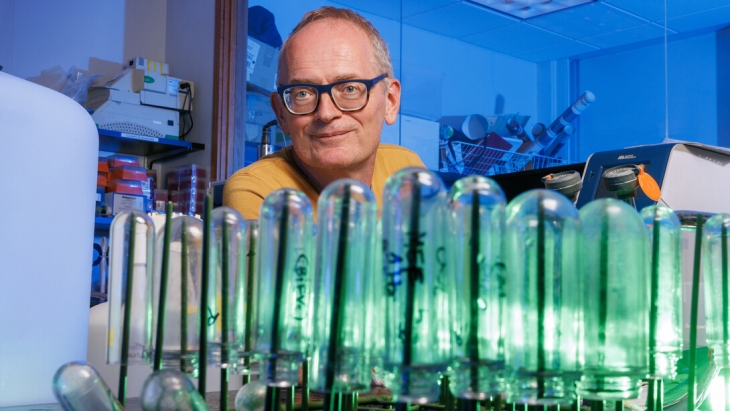Janos Zempleni
Willa Cather Professor of Molecular Nutrition, Department of Nutrition and Health Sciences
3:30 p.m., Nov. 12, 2025, Swanson Auditorium, Nebraska Union
Exosomes are tiny, virus-size particles. Cells use exosomes to communicate with each other in the human body. Communication is achieved by loading exosomes with regulatory messages in donor cells and sending the message-loaded exosomes to recipient cells. The Zempleni laboratory has pioneered a new line of discovery by demonstrating that exosomes and their cargo do not originate exclusively in endogenous synthesis but may also be absorbed from milk. This discovery broke the ground for two lines of investigation, which are 1) the importance of milk exosomes in infant nutrition, and 2) the use of milk exosomes for delivering therapeutic cargo to pathological, hard-to-reach tissues. The Nebraska Lecture will illustrate the relevance of milk exosomes for cognitive development and brain health in early stages of life, and the power of milk exosomes for delivering therapeutics to the brain with heretofore unknown specificity and efficacy.
The live webstream will begin at 3:30 p.m. CST.
If you’re having difficulty viewing the livestream, try this link






